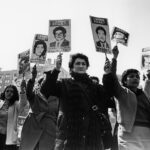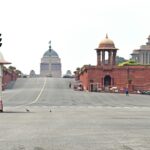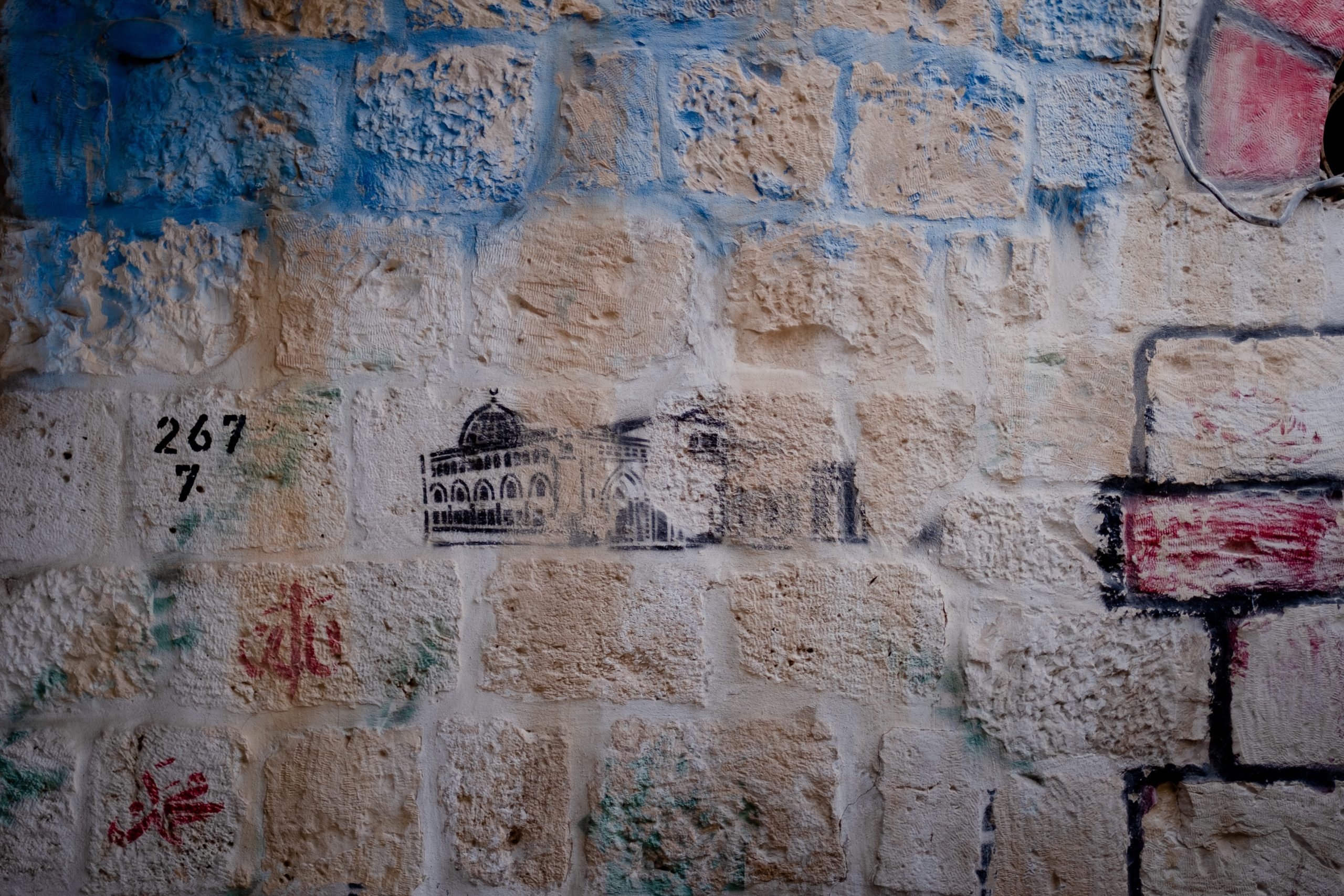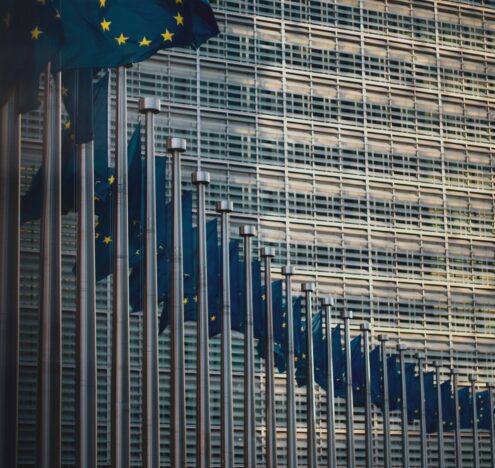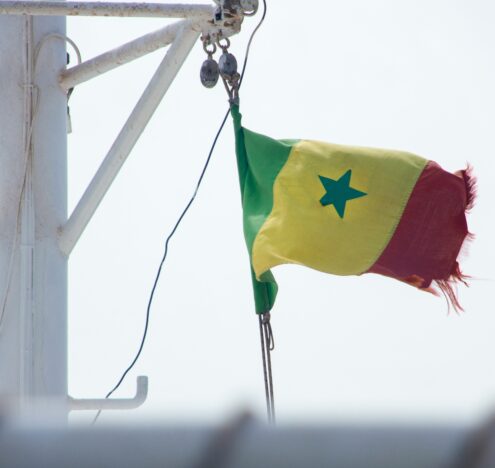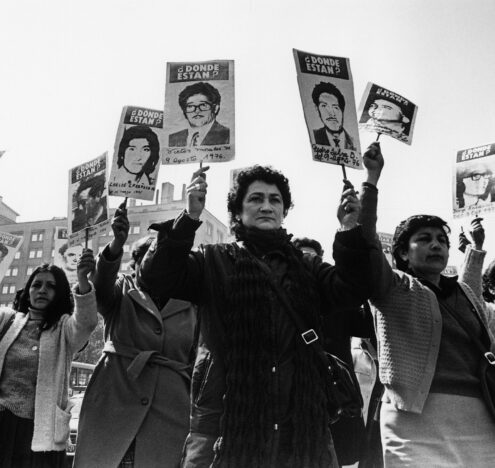April 17 marks Palestinian Prisoners’ Day, commemorating the hundreds of thousands of Palestinian political prisoners incarcerated by the Israeli occupation regime. Since Israel’s military occupation of the West Bank and Gaza in 1967, over 800,000 Palestinians have been arrested and detained by Israeli authorities. Currently, Israel continues to detain 4,450 Palestinians, among them 32 women, 160 children, and 530 administrative detainees held without charge or trial. These numbers could well increase today after Israeli forces raided the Al-Aqsa mosque, killing six Palestinians and injuring over 150.
Since 1967, the Israeli occupation authorities have issued over 1800 military orders regulating almost every aspect of Palestinians’ daily lives, including freedom of association, social and cultural expression, freedom of movement, education, public health, and land and property law. Moreover, hundreds of thousands of Palestinians have been tried and convicted in Israel’s military courts that have used these discriminatory military orders in a gross violation of Palestinians’ human rights.
Current events in Ukraine rightly bring to the fore discussions on accountability for violations of international human rights and humanitarian law, yet there is notable exceptionalism at play. While denouncing abuses in Ukraine, the United States and third parties remain silent on the continual, mounting, and gross crimes of the decades-long Israeli military occupation and apartheid regime. It is time to end that silence.
ISRAEL’S USE OF ADMINISTRATIVE DETENTION
One of the most obscene practices by Israeli occupation authorities is the systematic and arbitrary use of administrative detention. Under this kind of detention, Palestinians are held indefinitely without ever being charged with a crime. Instead, the Israeli military commander issued an administrative detention order based on “secret information,” alleging the person poses a “security threat” to the region. Neither the detainee nor the lawyer has access to this information, making it nearly impossible to challenge the accusations in Israeli military courts. In 2009 the UN Committee Against Torture found that the indefinite and lengthy periods of administrative detention alone, notwithstanding brutal detention conditions or interrogation practices, constituted a form of torture.
In practice, Israeli authorities routinely hold hundreds of Palestinians under indefinite administrative detention at any given time. Administrative detention is used en masse to target Palestinian human rights defenders, students, politicians, activists, and civil society leaders, as a coercive and punitive measure to maintain control and silence Palestinians. Even children are not safe from administrative detention. These numbers surge during any popular uprising or resistance movement, as happened last year during the May 2021 Palestinian “Unity Uprising.”
The Israeli military judicial system has become an inseparable part of the larger Israeli settler-colonial and apartheid apparatus, implementing Israeli laws and procedures against Palestinians.
The “Unity Uprising” was triggered by Israeli Occupation Forces storming the outer minarets of Al-Aqsa Mosque during the holy month of Ramadan in 2021, placing metal barriers around the Damascus Gate, and assaulting gathered Palestinians. Last year’s attack on Al-Aqsa coincided with the forced expulsion of eight Palestinian families in Sheikh Jarrah and the devastating war Israel was waging in the Gaza Strip, where Israel targeted civilian infrastructure and killed over 230 Palestinians, including 65 children and 39 women. During that time, arbitrary arrests were a fundamental tool used to repress the Palestinian people’s struggle for liberty across the occupied Palestinian territory. The statistics are staggering: at least 1,800 Palestinians in the West Bank, Jerusalem, and historic Palestine were violently arrested or detained.
The recent case of Bashir Khairi points to the use of administrative detention as an arbitrary measure and form of political persecution. Khairi is an 80-year-old retired Palestinian lawyer who served as a legal advisor and board member to several Palestinian civil society organizations. Additionally, he is a former political prisoner arrested in 1968 and spent 15 years in Israeli occupation prisons. In October 2021, he was arrested after an overnight raid on his home and interrogated about his participation in public activities and events. When he refused to confess, he was transferred to administrative detention.
Khairi’s arbitrary arrest and continued detention came amid the Israeli occupation regime’s latest blanket attack on Palestinian civil society, which began on Oct. 19, 2021, when the Israeli government designated six of the most prominent Palestinian civil society organizations that engage in critical human rights work in the occupied Palestinian territory, as “terrorist groups.” Israel’s persistent endeavors to incarcerate Khairi reflect Israel’s broader intention to coerce testimony and/or a plea bargain to criminalize entire Palestinian organizations more broadly. This is highlighted by the arbitrary and dated charges against Khairi, which were subsequently turned into an administrative detention order without charge or trial when proven insufficient to incarcerate him.
THE BOYCOTT
In part, Khairi’s detention and subsequent boycott of the Israeli military courts, alongside the increase of administrative detention orders and individual hunger strikes, prompted Palestinian administrative detainees to declare their collective boycott of the Israeli military courts under the campaign, “Our Decision is Freedom… No to Administrative Detention.” The coordinated and comprehensive boycott, which began on Jan. 1, 2022, targets Israeli military courts at all levels, including courts of first instance and appellate courts, and notably includes Israel’s civilian High Court.
For over 100 days, all Palestinian administrative detainees — currently 530 detainees — and their lawyers have refused to participate in the court procedures relating to administrative detention. Despite the boycott, Israeli military courts continue to confirm administrative detention orders in confirmation hearings that only include Israeli military judges, military prosecutors, and (in some cases) intelligence officers, attesting to the role of the military courts as a rubber stamp to the directives of the Israeli occupation authorities.
Israeli occupying forces, however, continue to arbitrarily arrest and detain prominent human rights defenders, such as Salah Hammouri, a Palestinian-French Jerusalemite, former political prisoner, and lawyer with Addameer Prisoner Support and Human Rights Association. Salah was violently arrested on Mar. 7, 2022, and placed under a three-month administrative detention order without any charge. At his arrest, Salah had been waging a legal battle challenging his illegal residency revocation and forced deportation from Jerusalem. The UN Human Rights Committee recently cited Salah’s case during its review of the fifth periodic report of Israel and in Amnesty’s landmark Israeli apartheid report.
THE ILLEGALITY OF ISRAELI’S MILITARY JUDICIAL SYSTEM
For over 30 years, the organization I lead, Addameer Prisoner Support and Human Rights Association, has worked to provide free legal aid to Palestinian political prisoners, document widespread practices of arbitrary detention, torture, and fair trial violations, and push forth advocacy and accountability efforts on the national and international levels. Unfortunately, the overwhelming majority of this work occurs under the Israeli military judicial system, a system built to entrench Israeli control and oppression over the Palestinian people.
The illegality of Israeli military courts goes beyond gross fair trial violations. While Israeli military courts are presented as dealing primarily with “security-related offenses,” the majority of cases brought before the courts are related to “offenses against public order,” including membership in political parties, student movements, union work, and even civil society organizations. Moreover, the system is not only profoundly indiscriminate — by contrast, Israeli Jewish settlers in the West Bank are tried under Israeli civil law — but is bound up with serious violations, including the systematic use of ill-treatment and torture, especially during the interrogation process, and the forcible transfer of Palestinian detainees to prisons inside the Israeli Occupying Power.
The functioning of the military courts also gives rise to the war crime of intentionally denying Palestinian prisoners their right to a fair and regular trial according to the Rome Statute of the International Criminal Court, specifically Article 8(2)(a)(6). Similarly, the forcible transfer of Palestinian prisoners into the Occupying Power violates the Fourth Geneva Convention and constitutes a war crime under the Rome Statute.
CONDEMNATION IS NO LONGER ENOUGH
The Israeli military judicial system has become an inseparable part of the larger Israeli settler-colonial and apartheid apparatus, implementing Israeli laws and procedures against Palestinians. The link between Israel’s military judicial system and its laws has been increasingly highlighted by the cascade of reports by Human Rights Watch, Amnesty International, and the UN Special Rapporteur, all of which find the Israeli regime guilty of the crime of apartheid.
Though the condemnation of Israeli apartheid is welcome — affirming what local human rights organizations have asserted for decades and for which they’ve been targeted, harassed, and even criminalized by the Israeli regime — it must be taken further on a practical level to pursue accountability. Specifically, the international community, particularly at the UN level, should reconvene the Special Committee against Apartheid, investigate and hold these practices accountable, and mandate specific responsibilities against State parties to the Convention on Apartheid. Watching the international response to the Russian invasion of Ukraine, it is clear that international law and accountability mechanisms can be implemented if only there is political will.
Sahar Francis is the General Director and Milena Ansari is the International Advocacy Officer of Addameer Prisoner Support & Human Rights Association, based in Jerusalem. It can also be found on Twitter here.









